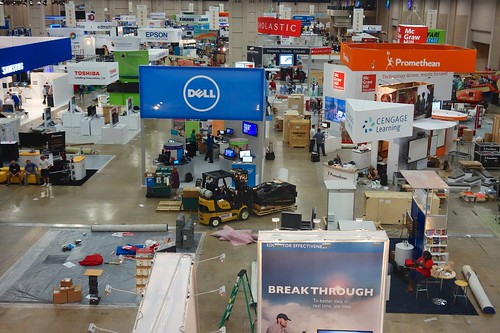 |
| flickr photo shared by Vicki C |
Digital citizenship- I think we can all agree it is pretty important. We want to teach our kids to navigate the internet safely and respect their digital footprint. I heard (though I cannot remember where) that, for our students, their digital footprint will be more important than a resume when they are seeking employment.
Almost every session I sat in this week at ISTE mentioned something about teaching our students to be good citizens online. I have been taking a deeper look at this myself while I engage in the curriculum rewriting process for my school and expand our technology integration initiatives.
So, I was browsing Twitter while I was on the plane ride home from San Antonio and I was pretty disheartened by what I was reading. Teachers, like, a lot of them, tweeting about their travels home. Tweeting, more specifically, about strangers around them. What they are wearing, eating, smell like, the stories they told. These posts were not nice and some of the statements were incredibly mean. These unsuspecting people are traveling just like anyone else and they are being made fun of on public forums.
In school, we call this cyber bullying.
I make this point because I was watching comments made by adults traveling back from an educational technology conference; some were bloggers that I believe take digital citizenship seriously. They were making comments almost exactly like the comments I have seen make middle school girls cry.
I am glad I saw this because it forced me to reflect upon what I was posting. It caused me to think twice before sending something out into the universe that could be hurtful. Even if the subject never reads the comment doesn't make it acceptable for me. It allowed me to ask myself, "If one of my students wrote this comment about a peer, would it be hurtful?" That makes it pretty easy for me to decide whether or not to post.
I understand the temptation, and I have been guilty of it myself, but we need to be better than that. Especially if we want any hope of transferring digital citizenship to our students.

